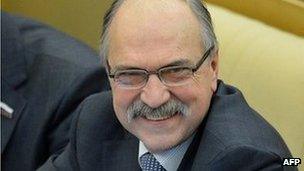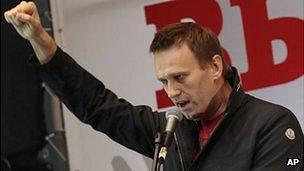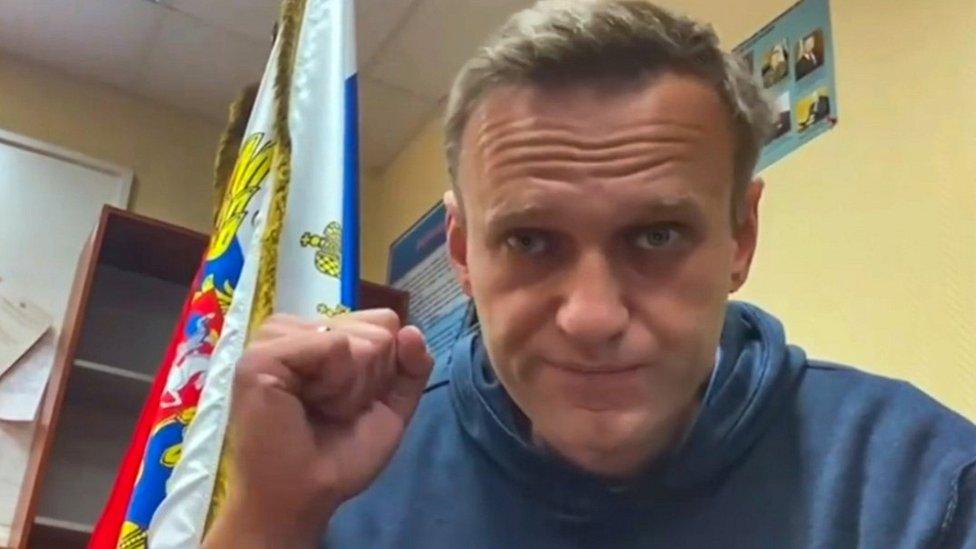Vladimir Pekhtin, Putin ally, quits over foreign homes
- Published

Vladimir Pekhtin's signature was on the ownership deeds
A senior figure in Russian President Vladimir Putin's party has resigned after anti-corruption campaigners accused him of owning homes in the US.
Vladimir Pekhtin has resigned his seat in parliament, where he was head of the ethics committee.
The resignation was a major scalp for opposition activist Alexei Navalny, who posted ownership documents online.
Mr Pekhtin described the affair as a "misunderstanding" and said: "I will prove that I am right."
He initially denied owning two apartments and a villa in Florida, saying they belonged to his son.
But Mr Navalny posted deeds with Mr Pekhtin's signature, identifying him as the part owner.
He had not entered the property in his annual declaration of MPs' interests, as required by law.
The opposition has accused pro-Kremlin MPs of hypocrisy for adopting anti-Western positions while secretly owning property in the West.
Doctor Z
Mr Navalny has become one of the best known opposition leaders, for his blogs alleging corruption among the elite, and for denouncing Mr Putin's United Russia as "the party of crooks and thieves".

Alexei Navalny is hoping others will follow his example
He has been arrested several times and charged with fraud.
The documents on the US property were actually provided to Mr Navalny by another blogger, known as Doctor Z.
He has been revealed to be Andrey Zayakin, a Russian physicist working at the University of Santiago de Compostela in Spain.
Both Mr Navalny and Mr Zayakin have been keen to encourage others to follow their example and dig out documents which expose corruption as a political tactic, says Stephen Ennis, a media analyst with BBC Monitoring.
Doctor Z said on Wednesday that he and Mr Navalny planned to expose more officials soon.
"This information gets accumulated faster than we are able to analyse and publish it," he told Kommersant FM radio.
- Published16 February 2024

- Published25 March 2024
